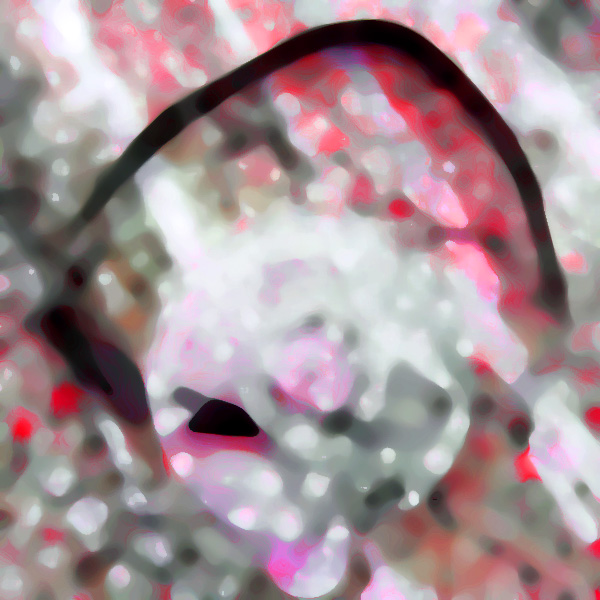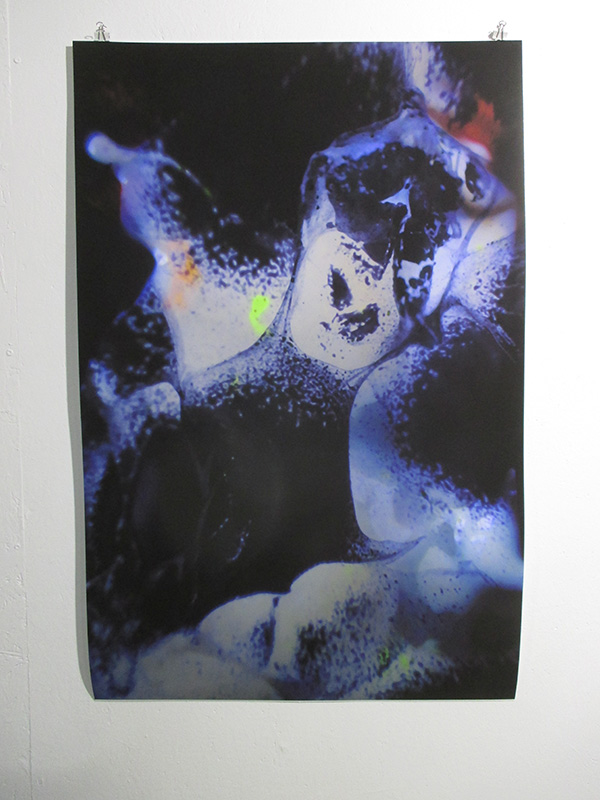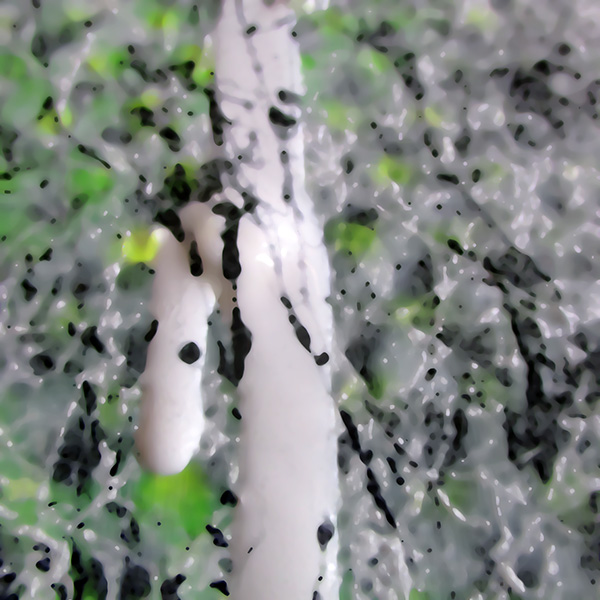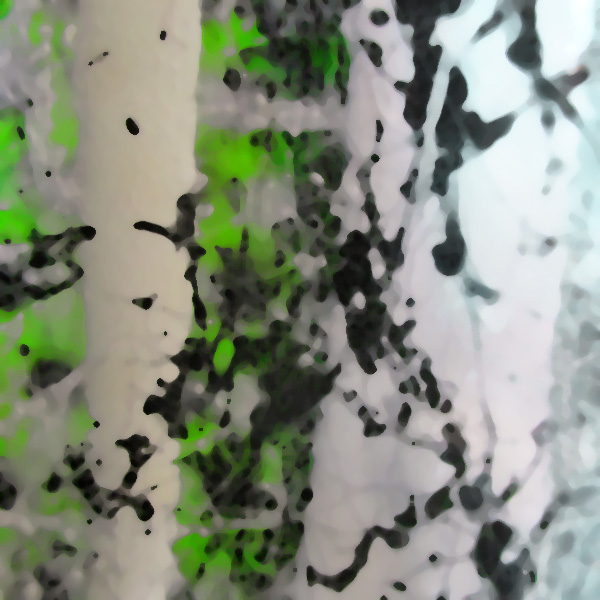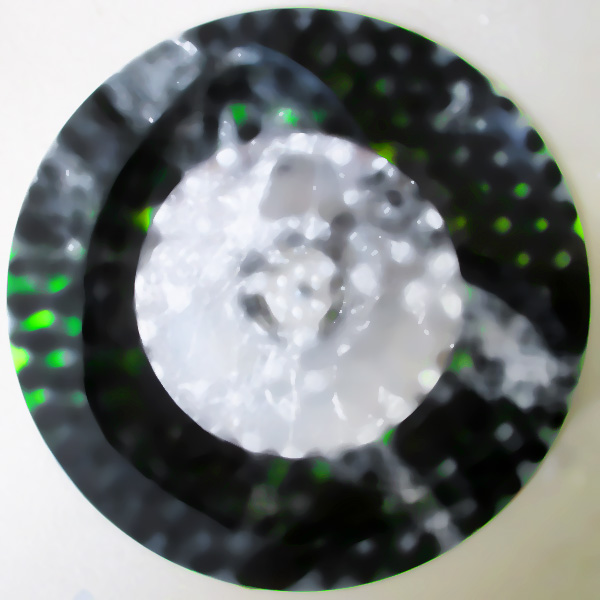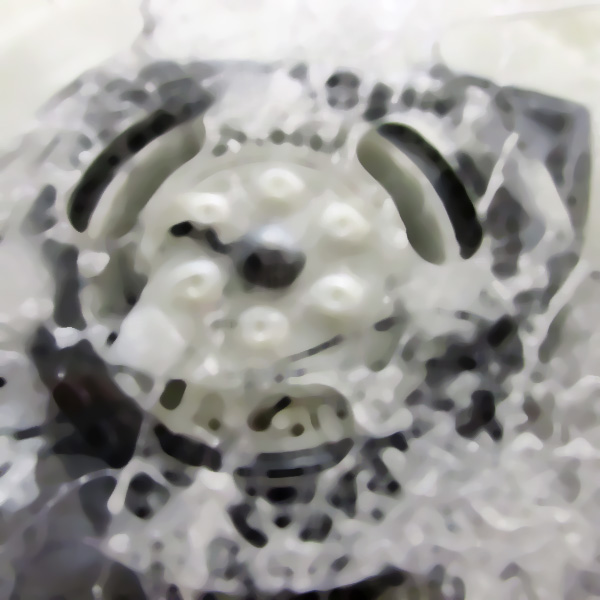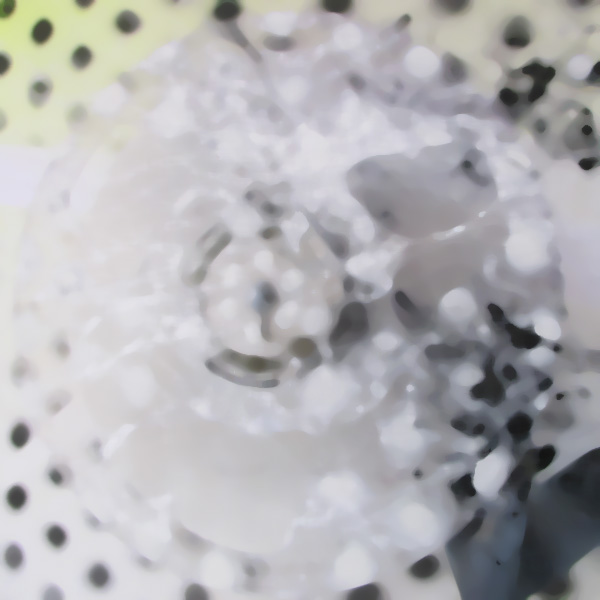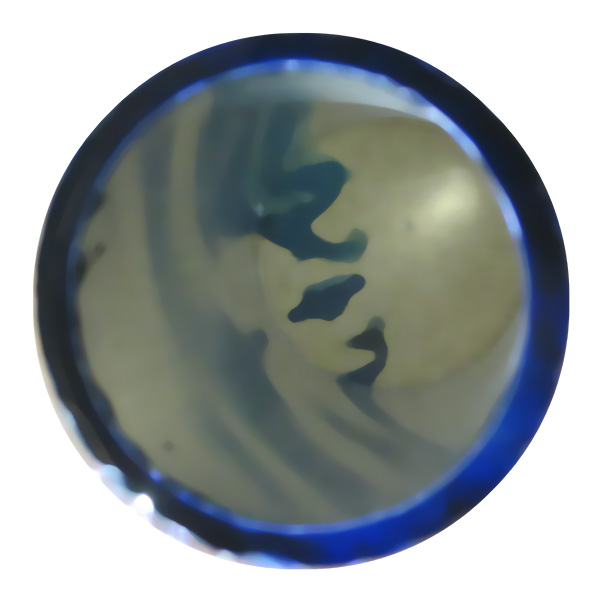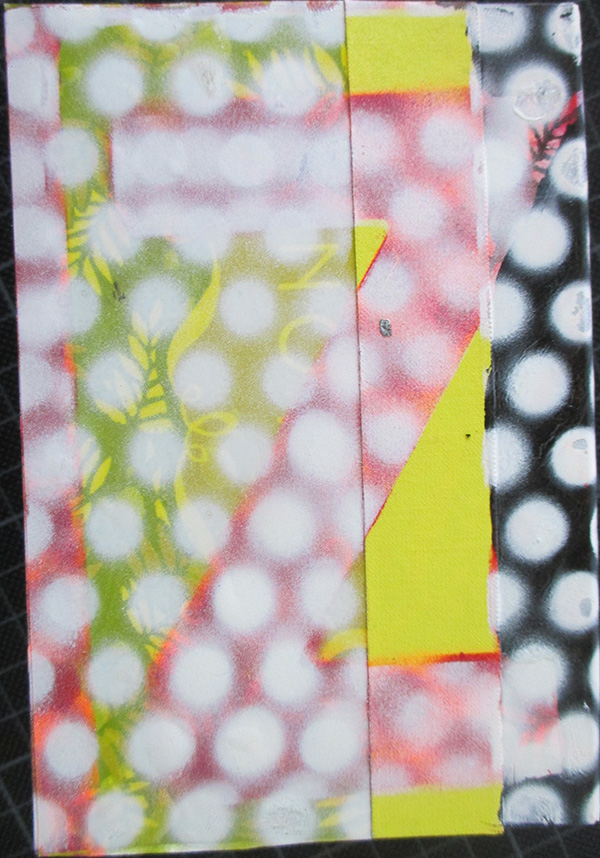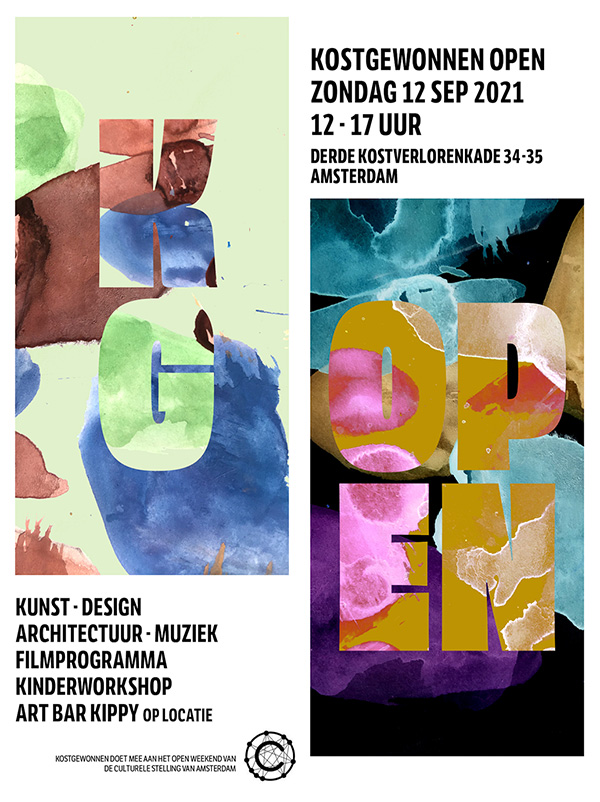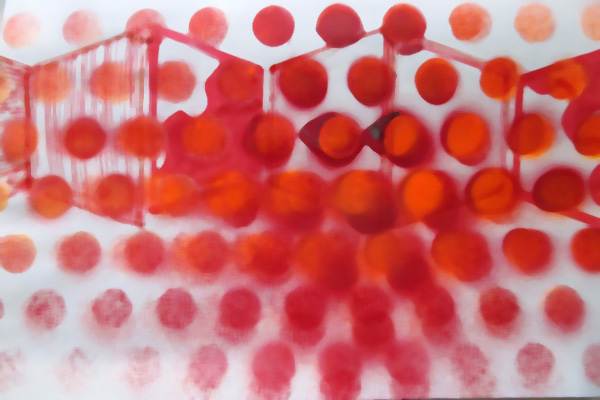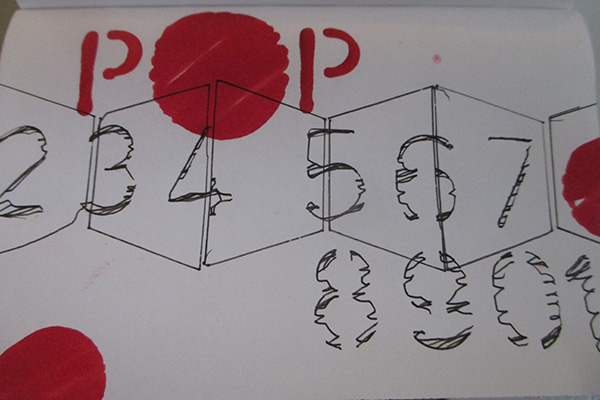printen
Vandaag een recent werk afgedrukt, 60×90 cm. Het blijft wennen omdat het zo anders oogt op papier dan op beeldscherm. Ik begrijp waarom Jeff Wall sommige werken in een lichtbak plaatst, daar ga ik voor deze ook over nadenken.
truth
‘I cannot stand the fact that everything is the accumulation of ‘distortion’ owing to one’s slanted view. I want the truth. I want to feel the truth by any possible means. I want someone or something to let me feel it… I know no other way but to present the structure of a drama which assumes fiction as fiction, that is, as fabricated truth.
Yoko Ono, 1999
In conversation with Kristine Stiles
denken is positief
Voor Deleuze is denken het belangrijkst in filosofie en denken is persé positief. Ook daarin staat hij in de traditie van Spinoza. Het positieve maakt het krachtig. We kunnen een toekomst denken, we moeten een toekomst denken.
gebrek
Wat is het verband tussen deze tijd en het GEBREK AAN FILOSOFEN, aan scheppende FILOSOFIE?
FILOSOFIE is verbonden met KUNST beiden zijn afhankelijk van CREATIVITEIT, komen hier uit voort. In dit digitale tijdperk is er een gebrek an creativiteit.
AUTISME is de norm, een bijzonder soort autisme*, een gezamenlijk na-apen. We doen allemaal hetzelfde, we DENKEN NIET. We hebben geen ruimte, geen tijd voor creativiteit.
We klampen ons vast aan MENINGEN, zonder te denken, RADELOOS.
*vermomd als sociaal, een nep sociaal zonder solidariteit
|
BEELDEN | GEDACHTEN | GELUID | GEUR | ERVAREN | ZIEN | HOREN | VOELEN | ERVAREN | WAARNEMEN | VOEREN | ACTIVEREN | DEELNEMEN | RUIKEN | INTUÏTIE | INZICHT | VERHOUDEN | ACTIVITEIT | CREATIVITEIT | ERVAREN | ERVARINGEN | VERSCHIJNEN | TASTEN | GELUID | BEELD
virtual intelligence, misconception
virtuele intelligentie is voor mij mogelijke intelligentie. in de betekenis van DeleuzeGuattari. bij hen is virtueel niet het tegenovergestelde van werkelijk maar een extra werkelijkheid. dé werkelijkheid is de meest gangbare werkelijkheid, de meest aangepaste werkelijkheid. er zijn daarnaast ontelbare andere werkelijkheden of virtualiteiten.
als ik virtual intelligence google zie ik het uitgelegd als artificial intelligence in een digitale omgeving. dat vind ik dubbelop, artificial intelligence is immers al digitaal.
misschien begrijp ik het woord intelligentie verkeerd, heeft het niets met denken te maken maar enkel met rekenen en napraten? de digitale computer (programmeerbare rekenmachine) kan niet denken maar misschien kunnen de meeste mensen dat ook niet en zijn zij analoge programmeerbare rekenmachines.
nieuwjaar
het vorige notitieboekje startte ik in juni 2020 vandaag start een nieuwe
met de z van zigzag voorop want daar begon het allemaal mee volgens Deleuze: de ontvouwing van het heelal
POSTSCRIPTS
Het zal bijzonder zijn te leven in bijbels land, in de regio waar de drie monotheïstische godsdiensten zijn ontstaan en waar al eeuwen daarvoor verhalen een belangrijk onderdeel van het leven, de cultuur, de samenleving waren. Fantastische verhalen waarin mensen goden werden, waar goden en mensen samen kinderen kregen, waar goden mensen met dierenhoofden konden zijn. Duizenden jaren bestonden gefantaseerde geschiedenissen naast werkelijke en waren even belangrijk en misschien zelfs even reëel. Is leven verhalen? Hoe is leven buiten verhalen? Kennen andere dieren verhalen of is dat iets bijzonders aan de mens?
Speculatieve fictie. De virtualiteiten van Deleuze & Guattari. Er zijn meerdere werkelijkheden, realiteiten, virtualiteiten. Maar daarmee bedoelen Jalal Toufic, Walid Raad, Gilles Deleuze en Félix Guattari iets anders dan wappies en anti-vaxers. Er is een essentieel verschil tussen creativiteit en rancune. Tussen verbeelding en angst.
Verbeelding en creativiteit scheppen ruimte, mogelijkheden, ontwikkeling. Dat is ook wat literatuur, kunst voorstaat wat zij behoeft te doen om boeiend en belangwekkend te zijn.
–
TOUFIC is een ideale DELEUZE lezer en tevens van DELEUZEGUATTARI. Hij gaat ver in zijn onderzoek naar VERLANGEN, er zijn geen gepredefiniëerde grenzen. Hij onderzoekt wat verlangen is, wat voorwaarden zijn, beperkingen, (on)mogelijkheden. Hij benadert verlangen als een KUNSTENAAR.
TOUFIC’S PSYCHOANALYSE kritiseert FREUD. Waar GUATTARI LACAN kritiseert gaat Toufic een stap verder en ontkracht FREUD middels diens eigen theorie.
–
UNTIMELY COLLABORATION, samenwerking met mensen die niet gelijktijdig leefden. Hier is kwantum niet nodig, dit is wat cultuur is, wat mensen al eeuwen doen. Kunstenaars, wetenschappers en anderen.
De VREEMDHEID van Jalal Toufics schrijven brengt mij rust. Zijn teksten bevatten vormen van WAANZIN en zijn niet in één keer te vatten. Herlezen, contextueel lezen, studeren zijn noodzakelijk om tot begrip te komen. Of tot meer begrip te komen. Dat kan lezend, denkend, dromend.
Het brengt geen onrust, hoeveel er ook te onderzoeken valt. Want mijn doel is niet verlichting. Ik leef en ontwikkel mij graag. Ik behoef een mate van autonomie en van gemeenschap. De verhouding tussen die twee vergt altijd aandacht.
–
‘human being is something that must be overcome’ to be replaced by the overman
Als TOUFIC hier NIETZSCHE aanhaalt (waarbij hij Uebermensch vertaalt met overman) denk ik dat Nietzsche gelijk heeft want hij spreekt hier over de Europese Christelijke man die zo duidelijk een rampzalige soort is.
Vervolgens gaat Toufic verder: om overmens te worden moet je volledig onwraakzuchtig zijn. Dan herken ik het hedendaagse ressentiment van rechts als al te menselijk, hier glijdt de mens af tot ondermens.
‘More important than thought is what leads to thought [donne à penser*] – Deleuze
* je krijgt denken aangeboden
–
JOUISSANCE, Nederlands: genot lust. Bij Toufic lijkt het meer een dwangneurose, de hedendaagse dwang tot zelfbevrediging, tot voortdurend genieten, voortdurende sensaties.
Brilliant
Een VERADEMING Koduro Eshun’s More Brilliant Than The Sun uit 1998 is een futuristisch boek over zwarte ritmische muziek. FUTURHYTMACHINES. Hij schrijft zoals de muziek klinkt. Hij gaat mee, beweegt mee, grooves. ‘The future is a much better guide to the present than the past.’
De VORM is nieuw TRUE TO THE MUSIC. He cuts & scratches met woorden. Het is muziek, TEXT MUSIC.
